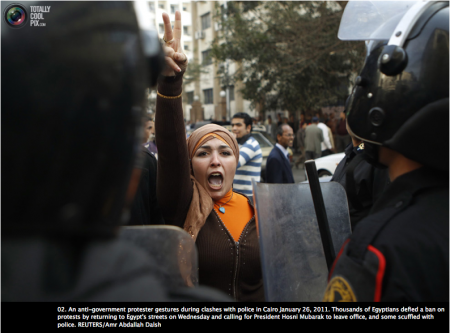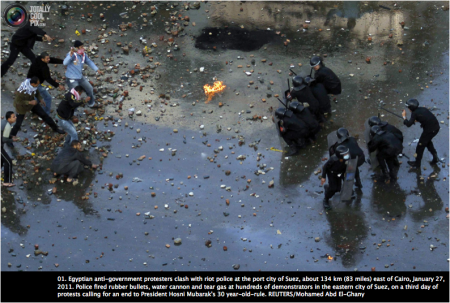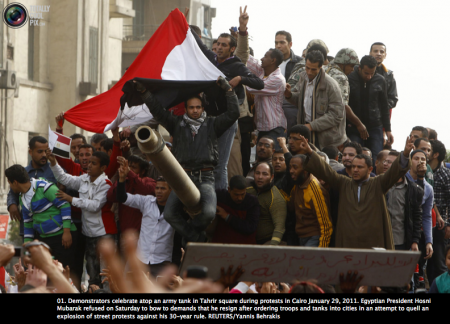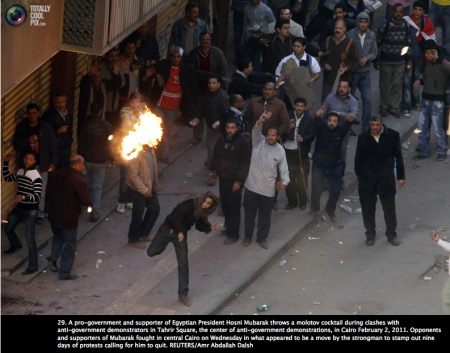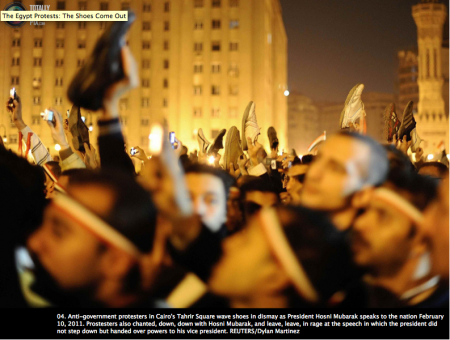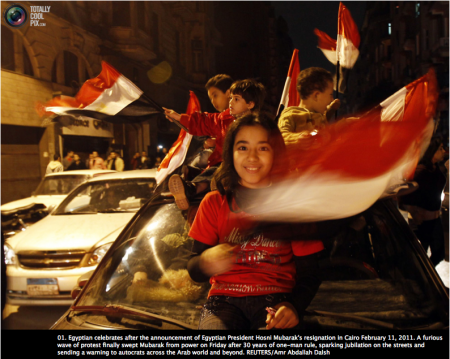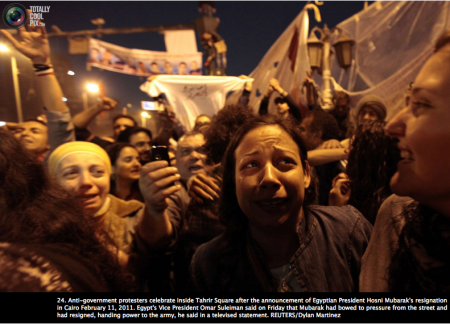The events that spark revolutions can come as a surprise. While everyone at home might want to overthrow the dictator, they don’t know if everyone else wants to do so too, so they are reluctant to go against the government. This is why protests are so important (as well as news coverage of the protests), because then the people offended by the government can see that there are a lot of other people like them.
Dictators, like Mubarak, do a lot to prevent protests: their secret police will arrest and “disappear” opposition leaders; riot police will be out in force to suppress protests if people start to gather.
The Egyptian protesters faced this very problem. So they organized over the internet, as anonymously as possible, and, for the January 25th protests, they arranged several meeting places for protesters so the riot police were too spread out to suppress everyone.
Stephen Pinker talks about this in terms of Individual Knowledge and Mutual Knowledge. Individually everyone knows the dictator is bad, but with the protests, they all realize, mutually, that everyone else also thinks the dictator is bad. Which is really bad for the dictator.

